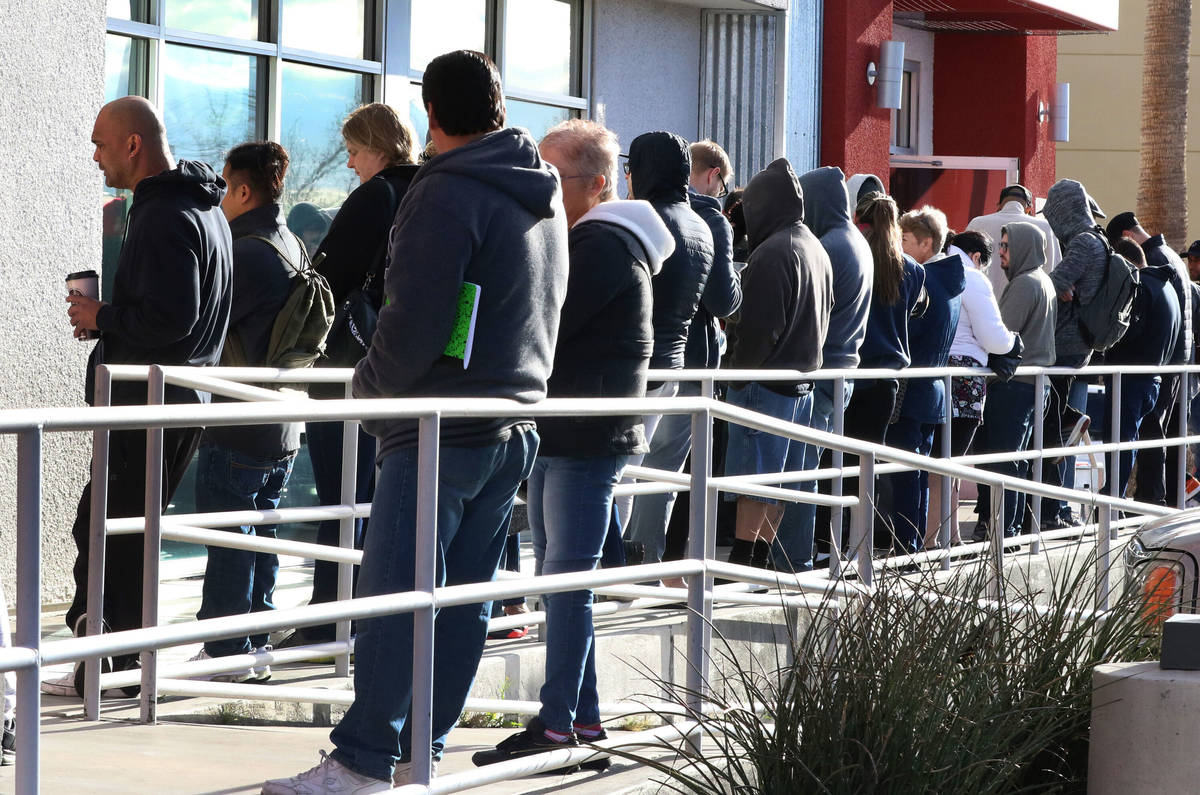Nevada unemployment payments totaled $9B in 2020
CARSON CITY — Nevada paid out some $9 billion in unemployment benefits last year, roughly 50 percent more than in the 12 previous years combined, while also blocking $2 billion in attempted fraud and recovering $100 million in wrongfully paid claims, agency representatives told a Senate panel Wednesday.
The Division of Employment, Training and Rehabilitation reviewed the agency’s unprecedented activity for the pandemic-ravaged period, where business closures caused by the coronavirus outbreak pushed state unemployment at one point to more than 30 percent, the highest ever on record anywhere in the United States.
Appearing before the Senate Commerce and Labor Committee on Wednesday, agency leaders also outlined a bill that would make changes to unemployment taxes paid by employers and the method for calculating benefits to recipients — changes both aimed at helping the state handle future economic shocks and recover from the current one.
But as it has for nearly a year, since the pandemic’s impact took root in March and boosted weekly unemployment claims from 20,000 to nearly 380,000 in weeks, the agency came under criticism from some lawmakers for not fixing payment problems fast enough in spite of the unprecedented challenges.
Among them: a “tsunami of fraud,” Director Elisa Cafferata told the panel. The state received 36,000 more initial unemployment claims than there are workers in the state, she said. Jeffrey Frischmann, a former deputy administrator contracted by the agency, later said the department had blocked 244,000 fake claims and has roughly as many on hold for review; possibly 10,000 of those are authentic claims, he said.
The fraud attempts “really slowed down the entire process of being able to get these people paid,” he said. “We want to get them paid, trust me, but we also don’t want to send bad money out the door.”
Sen. Keith Pickard, R-Las Vegas, took issue with what he called Cafferata’s “rosy and complimentary” presentation measured against complaints he received from constituents trying to get their benefits paid. Cafferata became the agency’s third head in a year when she was appointed acting director in August. Her appointment became permanent last month.
The intention “was not to say there were no problems,” she told Pickard. “The intention was to say this was a Herculean task.”
Lawmakers also had concerns on rate changes Senate Bill 75 would make to taxes employers pay into the state’s unemployment trust fund. The fund stood at $2 billion a year ago but was depleted last year. The state had to borrow $250 million from the federal government to keep payments going – less than the $773 million it had to borrow during the Great Recession. The rate changes would not take effect until next year and are intended to bring the payment schedule up to date.
School system workers also testified seeking a change in the bill to provide for some non-teacher employees who can’t claim unemployment. Such employees work summer jobs to supplement their income — jobs they lost during the pandemic with no recourse to seek benefits.
Contact Capital Bureau reporter Bill Dentzer at bdentzer@reviewjournal.com. Follow @DentzerNews on Twitter.



















